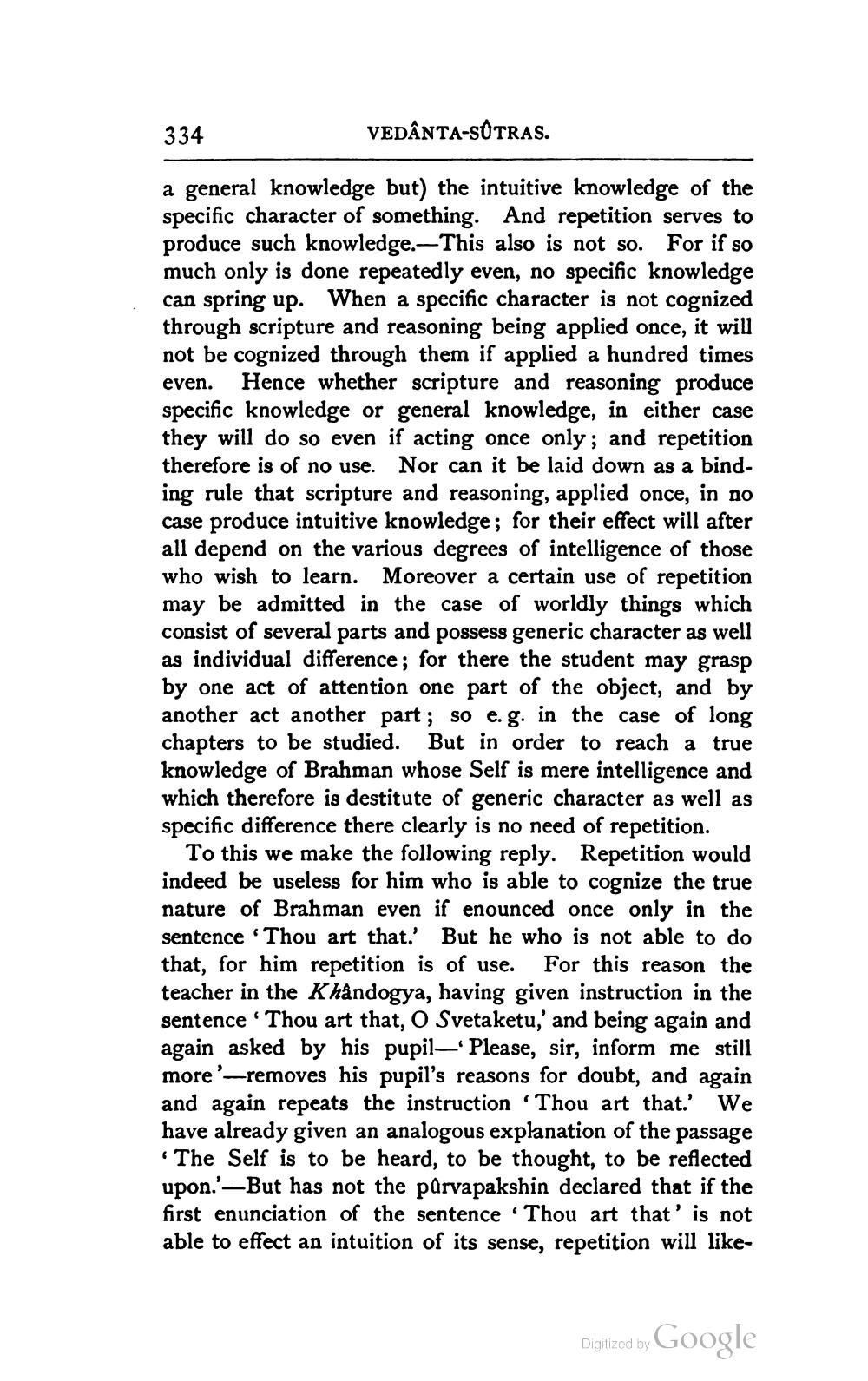________________
334
VEDÂNTA-SOTRAS.
a general knowledge but) the intuitive knowledge of the specific character of something. And repetition serves to produce such knowledge.—This also is not so. For if so much only is done repeatedly even, no specific knowledge can spring up. When a specific character is not cognized through scripture and reasoning being applied once, it will not be cognized through them if applied a hundred times even. Hence whether scripture and reasoning produce specific knowledge or general knowledge, in either case they will do so even if acting once only; and repetition therefore is of no use. Nor can it be laid down as a binding rule that scripture and reasoning, applied once, in no case produce intuitive knowledge; for their effect will after all depend on the various degrees of intelligence of those who wish to learn. Moreover a certain use of repetition may be admitted in the case of worldly things which consist of several parts and possess generic character as well as individual difference; for there the student may grasp by one act of attention one part of the object, and by another act another part; so e. g. in the case of long chapters to be studied. But in order to reach a true knowledge of Brahman whose Self is mere intelligence and which therefore is destitute of generic character as well as specific difference there clearly is no need of repetition.
To this we make the following reply. Repetition would indeed be useless for him who is able to cognize the true nature of Brahman even if enounced once only in the sentence Thou art that.' But he who is not able to do that, for him repetition is of use. For this reason the teacher in the Khåndogya, having given instruction in the sentence 'Thou art that, O Svetaketu,' and being again and again asked by his pupil—Please, sir, inform me still more'-removes his pupil's reasons for doubt, and again and again repeats the instruction Thou art that.' We have already given an analogous explanation of the passage
The Self is to be heard, to be thought, to be reflected upon.'-But has not the pūrvapakshin declared that if the first enunciation of the sentence Thou art that' is not able to effect an intuition of its sense, repetition will like
Digitized by
Digitized by Google




